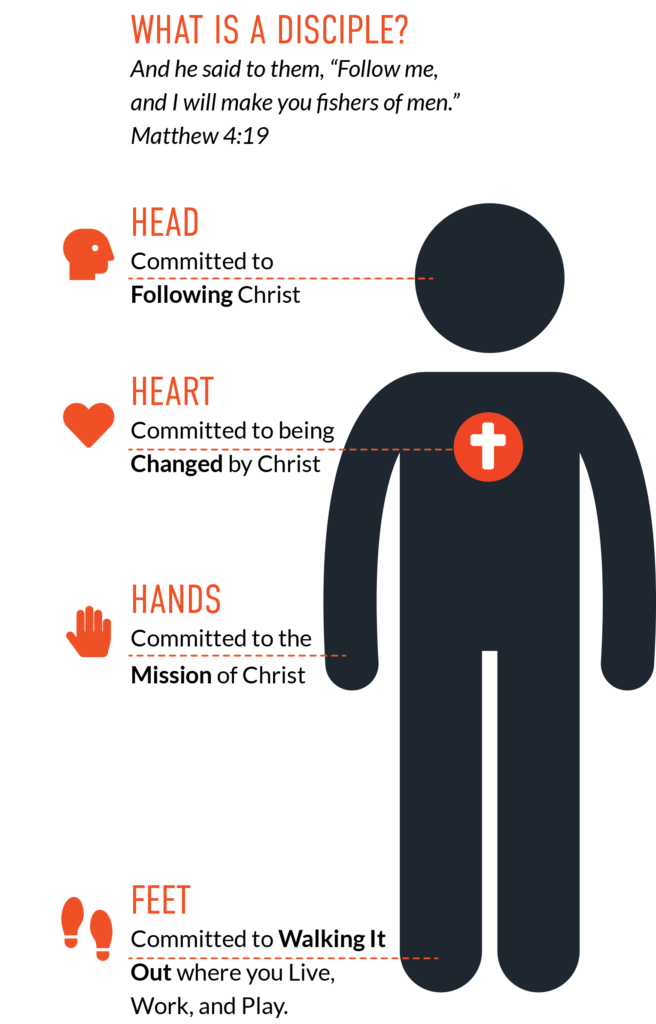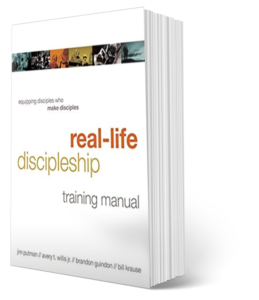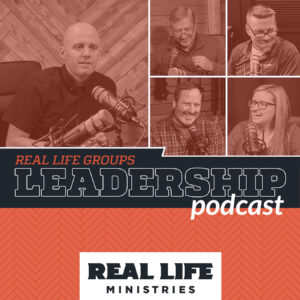What is a Disciple?
When it comes to Discipleship – we try to empower our leaders with tools that they can utilize as they are both living out and teaching others along their journey. One of these tools is our powerful Head, Heart, and Hands analogy. Here is where that comes from:
At Real Life Ministries, we have a specific definition for what it means to be a disciple of Jesus. For us, being a disciple involves three essential elements: following Jesus, experiencing transformation through Him, and being dedicated to fulfilling His mission.
This definition is derived from the invitation that Jesus extended to his disciples in Matthew 4:19 when he said, “Follow me, and I will make you fishers of men.” We believe that true discipleship requires not only an outward commitment to follow Jesus but also an internal change of heart.
To further explain this process, we use the concept of Head, Heart, and Hands. In other words, discipleship encompasses a deep understanding and knowledge of God’s teachings (Head), a heartfelt commitment to live out those teachings (Heart), and active engagement in walking this out in every environment you are in (Hands). This approach develops individuals who become fully devoted disciples of Christ.
As both leaders and disciples of Jesus, we take the call to discipleship seriously. We strive to equip believers with the necessary tools and resources to grow in their faith and fulfill their role as ambassadors for Christ in the world.

Head, Heart and Hands
This Head/Heart/Hands imagery is an integral part of our teachings and processes here at Real Life. We have discovered that these terms provide a clear framework for understanding and addressing various aspects, ranging from Spiritual Maturity to Ministry/Program needs and Church growth. By utilizing this imagery, we aim to simplify concepts and facilitate meaningful discussion and self awareness within our community.
How do we utilize this analogy when equipping our leaders?
We want our leaders to not only understand and live out this concept themselves, we want them to teach it intentionally to the people they are leading. Here are some of the ways we encourage out leaders to implement these concepts.
Head:
Our goal as leaders is to intentionally disciple our people to maturity. This means we will help our people understand right doctrine and be able to pass it on to those they disciple. This also means that they are learning to follow Christ as their Lord. God has given every disciple His Holy Spirit, His Word, and His people, so that we can know and do His will.
Disciple Making Methods you can employ: One on one relationships with more mature believers who will teach them, personal devotions and Bible reading, classes during weekend services, sermons, seminars, Bible conferences, small group curriculum, recommended books, computer generated classes, membership classes, 301s, equipping trainings for leaders, summer series teaching Bible studies, etc.
Heart:
Our objective is to foster a culture of shepherding that facilitates personal transformation, guiding individuals from a worldly mindset towards embodying the likeness of Jesus. These individuals are evolving into devout followers of God and others; they are selflessly serving their community and the church body.
Disciple Making Methods you can employ: Time with the Lord in prayer and devotions, time with more mature believers who help us see our blind spots, service to others by using our gifts, etc.
Hands:
Our main goal is for individuals to utilize the gifts, abilities, experiences, and other resources bestowed upon them by God in service of the mission of Christ.
Disciple Making Methods you can employ: Membership classes, being in relationship with a disciple maker who helps them discover and use their gifts, trainings led by staff, ministry and volunteer giftings assessments, all-church volunteer opportunities.
The head/heart/hands framework offers a comprehensive approach to leading others in their discipleship journey. By engaging the mind, heart, and hands, we enable them to deepen their faith and to make lasting change in their lives. Share on XHow can we help our leaders utilize Head/Heart/Hands in Small Group settings?
In order to create a meaningful and productive small group discussion environment, we recommend that leaders ask intentionally structured questions in a head/heart/hands format. This approach allows us to gain insight into the spiritual growth of our participants. As the group members respond to these questions, their answers can provide valuable information about their relationships with God and others, as well as how they apply these principles in various aspects of their lives. Their responses can uncover the depth of their knowledge about God and His Word (head), the emotions driving their thoughts and actions and how God is transforming them (heart), and their engagement in serving others (hands).
Listed below are some general questions that a leader can ask that will give them a base to begin with, a starting place from which to develop their own questions. They are meant to go along with the study of a passage of scripture or a message that the group has listened to.
HEAD: These questions help us to examine what the Word shows.
• What do you see God doing, saying, or showing about himself?
• Who are the people this was intended for and what is going on with them?
• What stands out to you in this passage?
• What do you think the main point is?
• What does this show us about God’s character? What about man’s character?
HEART: These questions help us wrestle with what we believe.
• What did you like from this passage/message? What did you dislike about it?
• Identify any problem or difficulty presented in this lesson. Was it solved?
• Was anything in this passage/message/lesson new to you?
• What questions does this raise for you?
HANDS: These questions help us bring truth and beliefs into our everyday realities
• What is one way you can apply this truth to your life this week?
• Are you challenged to think differently because of this passage and discussion?
• How can you use this to disciple others?
• How does this impact you? Your relationship with others?
Asking follow-up questions after hearing someone’s response is a valuable tool in the process of information processing and promoting better understanding. These types of questions stem from a genuine interest, curiosity, and a desire to gain deeper insights and perspectives. It is important to note that the purpose of follow-up questions is not to interrogate or pressure individuals into divulging more information. Instead, they serve as an opportunity for deeper understanding and connection.
Here are some examples of follow up questions you could utilize in your discussions:
• What has brought you to that understanding?
• What would be an example?
• Can you explain a little more?
• What might be another way to look at it?
Summing Up:
In conclusion, the head/heart/hands framework offers a comprehensive approach to leading others in their discipleship journey. By engaging the mind, heart, and hands, we provide individuals with a well-rounded understanding of their faith and equip them to make lasting change in their lives and communities. Hopefully we have been able to give you some ideas and tools for using the head/heart/hands framework to help lead others as they are on their journey of discipleship.
Other resources you may be interested in:

The Disciple’s Journey will walk you through 12 weeks of Biblical truths about being a disciple of Jesus. The daily review questions are designed to encourage self-evaluation and give practical steps to put into action what they are learning in their different spheres. Whether you go through this workbook on your own or with a group, it will change the way you view and walk through all of the spheres of your life, aligning them to your identity as a disciple of Jesus.

REAL-LIFE DISCIPLESHIP TRAINING MANUAL
This companion training manual to Real-Life Discipleship provides unique guidance and insight to pastors, church leaders, and their disciples as they work to create an effective discipleship program. With a thorough, results-oriented process that can be applied in other contexts and cultures, this manual explains the necessary components of disciple-making so that every church member can play a part in reaching others for Christ.

The Real Life Groups Leadership Podcast:
Join us as our leaders engage in conversations about creating small group environments where people grow in Spiritual Maturity in relationship.






